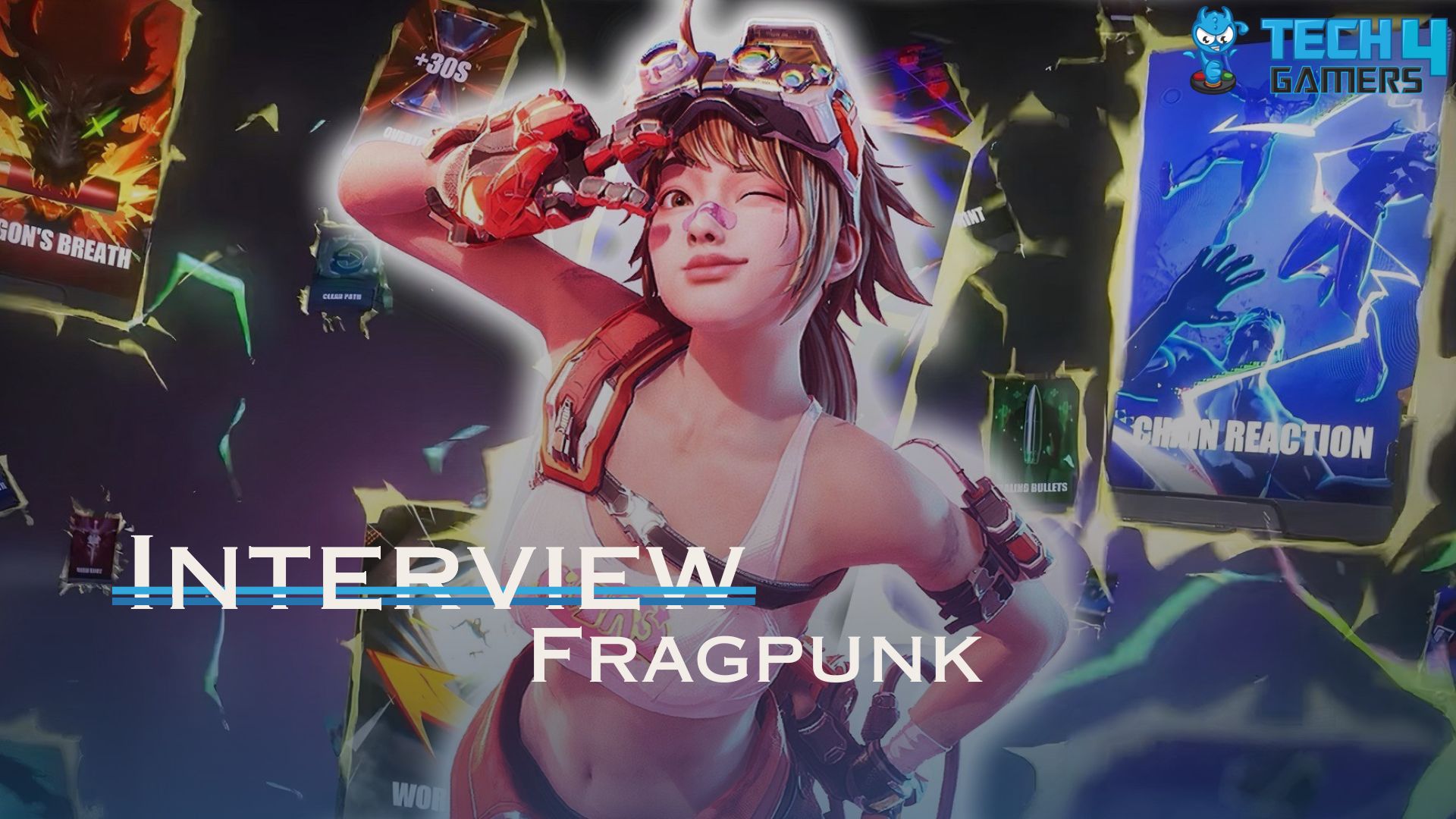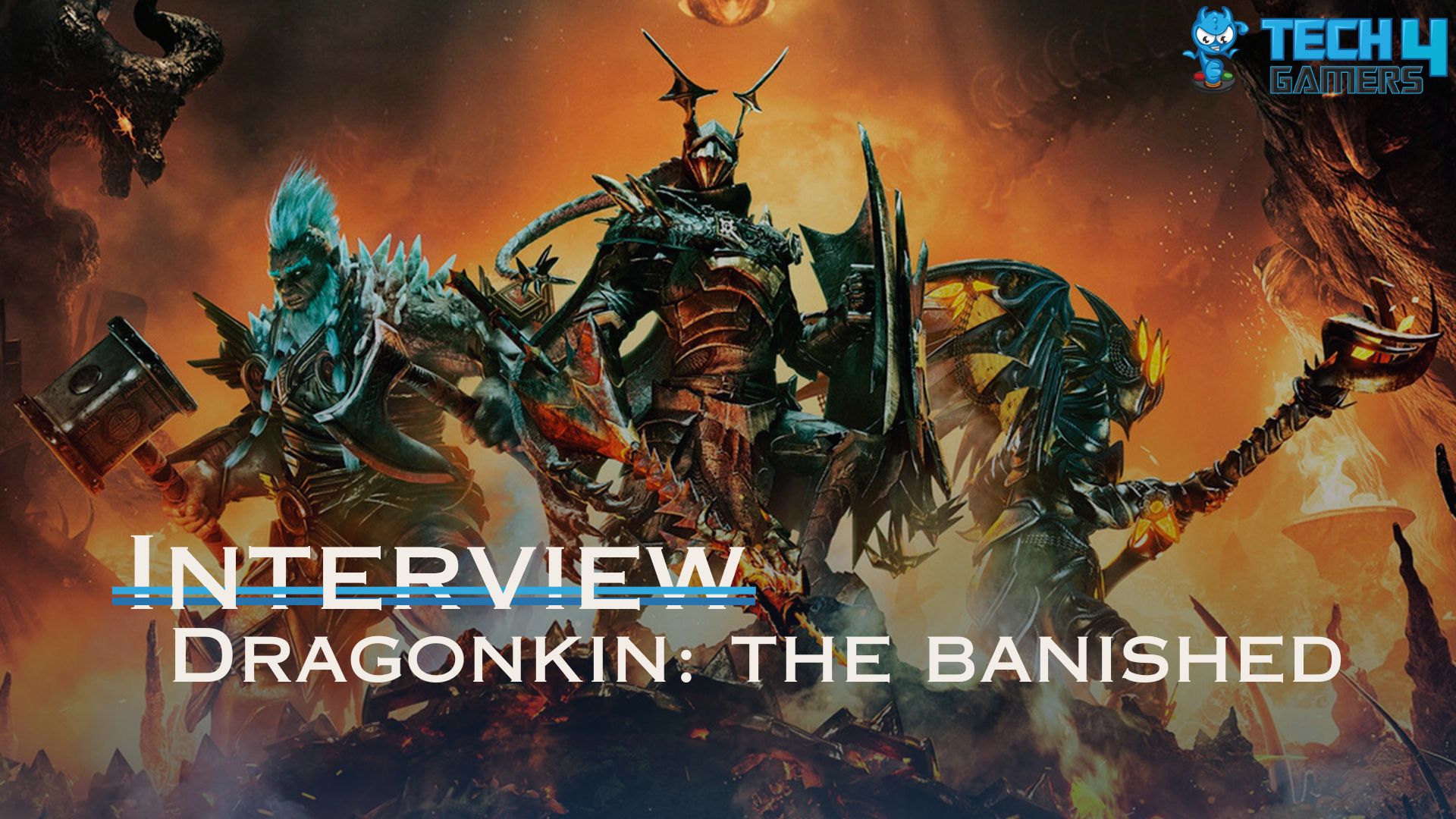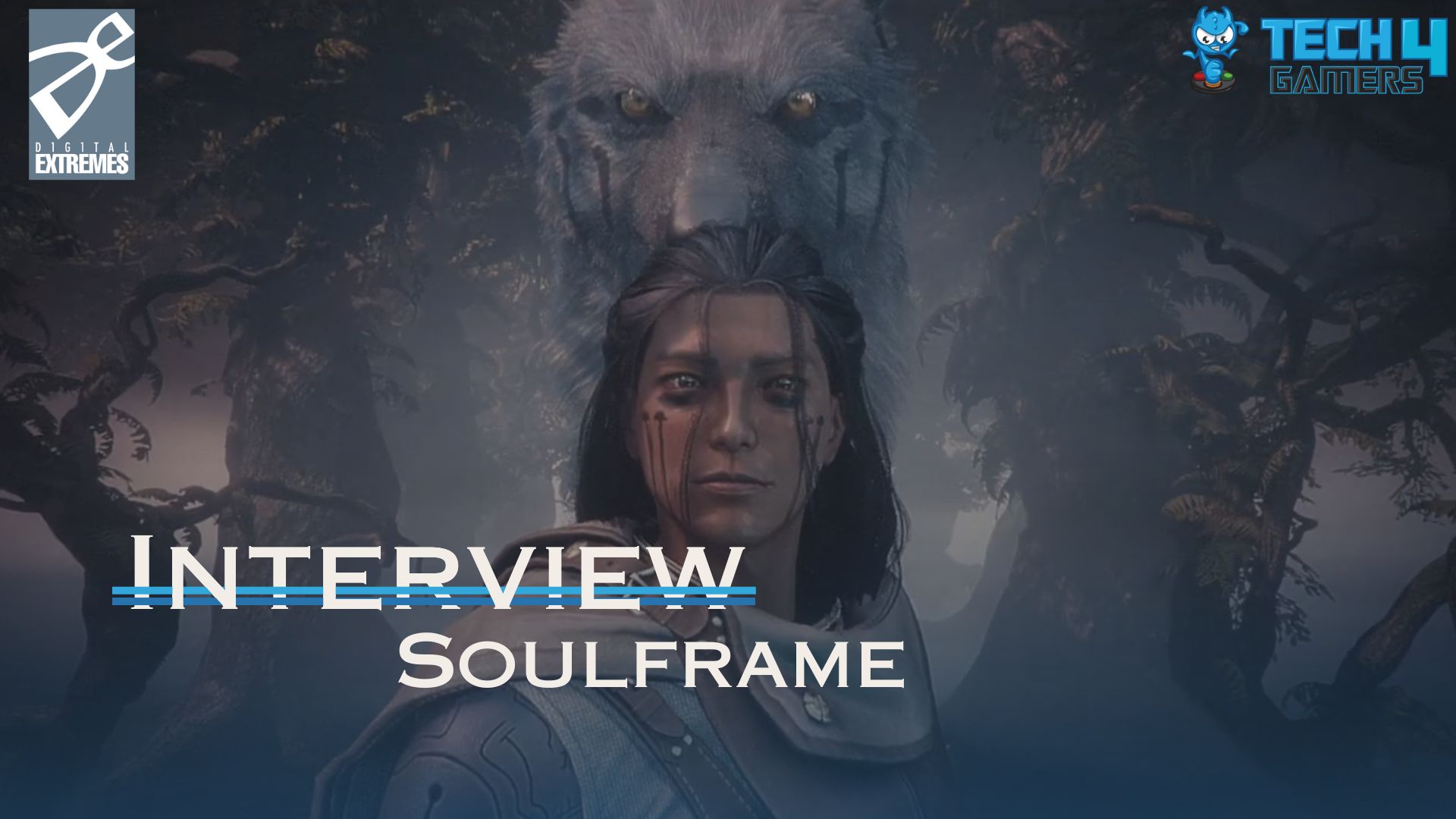- Heading Out has captured the attention of racing game fans worldwide.
- Serious Sim has just launched the game on Steam and received a remarkable reception.
- Just before the release, we had the chance to discuss Heading Out with Serious Sim. During the interview, the team described its thoughts on generative AI, nailing a balance between rally and arcade racing, and more.
Heading Out may initially seem appealing as an indie racer with a comic-like art style, but there’s a lot more to this game than meets the eye.
Developer Serious Sim has crafted an experience where the racing goes hand-in-hand with the world and its stories. Each time you embark on a new journey, the road promises exciting new adventures that tackle themes like social issues, racism, depression, and more.
To learn more about the experience, we interviewed various members of Serious Sim. During the discussion, we explored the game’s length, Serious Sim’s next projects, and the decision to go with a comic-like art style.
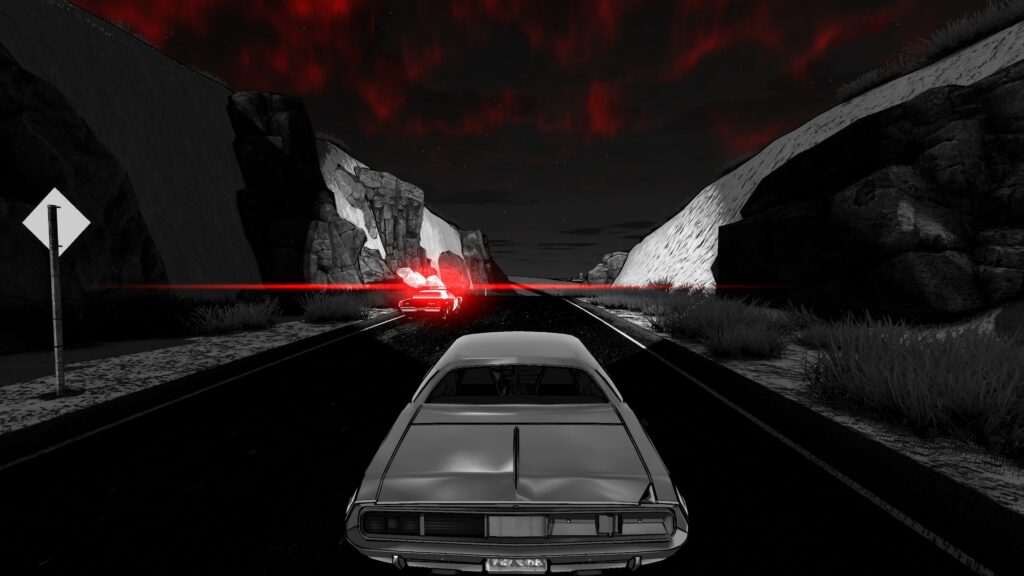
Tomasz Pstrągowski, lead writer: When we founded Serious Sim, our goal was to create games that are different and interesting. Even if it’s a well-known genre (racing, RTS), we look for a twist that makes the player think, “ok, I know this genre, but I haven’t seen this before.” We achieved that with Radio Commander and hope to achieve that again with Heading Out.
As far as inspiration goes, there was a lot. Here are some of them: The Driver series (aesthetics), Interstate 76 (70s vibe), GTA (radio hosts), FTL: Faster Than Light (strategy map), Need for Speed: The Run (story structure), Fallout 1 & 2 (random encounters), the movies Vanishing Point, Two-Lane Blacktop, Thelma & Louise, Deathproof, Paris, Texas, the Sin City comic series, the novels The Road, A People’s History of the United States, or On the Road. The list goes on and on.
Jakub Bukała, project lead: Our goal was to blend these elements into one extraordinary experience. In practice, it means that all the aspects have to be at least good, which in turn requires a lot of attention on many fronts. But all in all, I think that the most time-consuming were radio broadcasts and comic encounters.
A lot of people were committed to the creation process of these: writers, programmers, designers, graphical artists, voice actors, sound designers, as well as QA and localization. I hope that the final result is worth it and players will enjoy these very much.
Jakub Bukała, project lead: My personal preferences when it comes to the driving model and vehicle handling are pretty influenced by the Dirt series and other rather “realistic” rally simulators. So, initially, the driving model of Heading Out was much more realistic than it is now.
However, during the development, we decided to gradually shift into more… forgivable territory. We tried to catch this “simcade” feeling or physical realism but without unnecessary frustration. All in all, we decided that this more arcade-ish approach, similar to the Forza Horizon series, is better for the game in general.
Tomasz Pstrągowski, lead writer: When we started working on Heading Out, we asked ourselves how we could differentiate our game from others on the market. We couldn’t compete with the AAA racing games. Those games rely on very expensive, hyper-realistic graphics.
Since we were inspired by old movies, we decided that the game should be black and white – this would help us stand out and achieve that vintage vibe that accompanies watching Vanishing Point today (even though the movie itself is not black and white).
Once we decided on a black-and-white aesthetic, the decision to tell the narrative elements in comic book form seemed obvious. Especially since both I and our art lead – Kasia Haptaś – are big fans of comics, I even wrote a PhD thesis on autobiographical comics.
Jakub Bukała, project lead: Both these games are pretty unique, and this alone is something that makes them similar, but when it comes to specific elements, I think that both games are focused on well-written and interesting stories and characters. Radio Commander is a game about war but very much from the perspective of the individuals involved.
In Heading Out, the whole game is a road-movie-inspired vessel for telling stories and introducing interesting characters. When it comes to gameplay, one can say that both games are somehow centered around the radio, but in different ways – military radio communication vs Americana music and talk radio.
Szymon Adamus, business developer: To be honest, in these last four years, we reached out to everyone. It has been a long process full of exciting but also stressful challenges. In the end, we decided that we would focus on the PC version and try to make the best game we could, and if players fall in love with it, then we will think about what to do next.
After the release of the game, we will definitely revisit these and other ideas with our team and publisher.
Jakub Zataj, designer: A typical run, meaning a single journey, lasts around 1-1.5 hours, depending on the act. Playing through the whole game should take from 6 to 8 hours to finish the main story arc.
After that, you can replay the game with the possibility of encountering different glimpses, chain-quests, and radio broadcasts or even see racing stages you haven’t encountered before. If you want to see everything, the game should offer you a couple dozen hours of fun.
Jakub Zataj, designer: Actually, we haven’t used procedural generation! The uniqueness is built by the amount of hand-crafted content that forms a sequence of events you experience in the game. Think standard rogue-like elements becoming story beats.
We used algorithms to make every run offer different choices on the map, so no single path is optimal. We also have algorithms that draft story events based on your placement, resources, and time of day. Additionally, another algorithm plays radio broadcasts that comment on your choices, both story and gameplay-wise.
When it comes to procedural generation, it proved to be a good tool to achieve certain things, but with such tools, it always boils down to making them constrained enough so they generate things that make sense.
With the emergence of gen-AI, this is becoming even more of a problem, as they have proven to be too unreliable and quite hard to constrain. When we’re creating games, we’re aiming for a certain experience; we want to tell stories and make players feel things we want them to.
So far, I’ve yet to see a gen-AI tool that helps me with that without replacing somebody who could’ve done that far better. There is this common dream of having a life-like experience in games, for example, while talking to NPCs.
We also have Ubisoft Paris showing a prototype of NEO NPCs, which hold that promise. For now, I can’t imagine the amount of work that has to be put into constraining an LLM so it delivers exactly what we want and testing it to make sure we can deliver the intended experience.
Aside from that, there’s a whole layer of problems concerning the copyright and ethics of the gen-AI learning materials and outputs.
Szymon Adamus, business developer: Time will tell. It would be awesome to be able to expand Heading Out and give players even more deep emotions, but at the end of the day, all this takes time, resources, and a lot of amazing people’s talents. You know how it is. For now, we’re focusing on the launch and spoiling players with all the goodies we have.
Tomasz Pstrągowski, lead writer: Of course, we hope that Heading Out will be a commercial success and we will be able to further develop this IP. But we also have plans B and C. Project B is a small, cozy game about cleaning apartments and discovering the history of their inhabitants.
The protagonist of this game is an immigrant trying to get along in a foreign country and learn a foreign language. Project C is a narrative-heavy RPG set in an alternative history in eastern Poland.
It would be an urban fantasy that delves deep into Slavic folklore, in which the player would take on the role of a fixer trying to save his city. Both projects are in the prototype stage, and we are looking for further funding for both.
Jakub Bukała, project lead: From our perspective (a small indie team), Saber Interactive is a huge company. It is therefore even more important to emphasize that our cooperation has always been very good. During the development, we met many great people, and their experience was very helpful for us.
I’m still very impressed and grateful when I can speak and learn a little bit from people who worked before in id Software and many other legendary companies. I am pretty sure that alone, we could have gone faster, but with a publisher like Saber, we can go further.
Jakub Bukała, project lead: Thank you! In Serious Sim, we love games, and we love to talk about games – analyze and interpret them. The best we can hope for is to hear back from players about how they liked Heading Out and what their interpretation is.
The more voices in this discussion, the better, so I would like to encourage everyone to try Heading Out and let us know what you think!
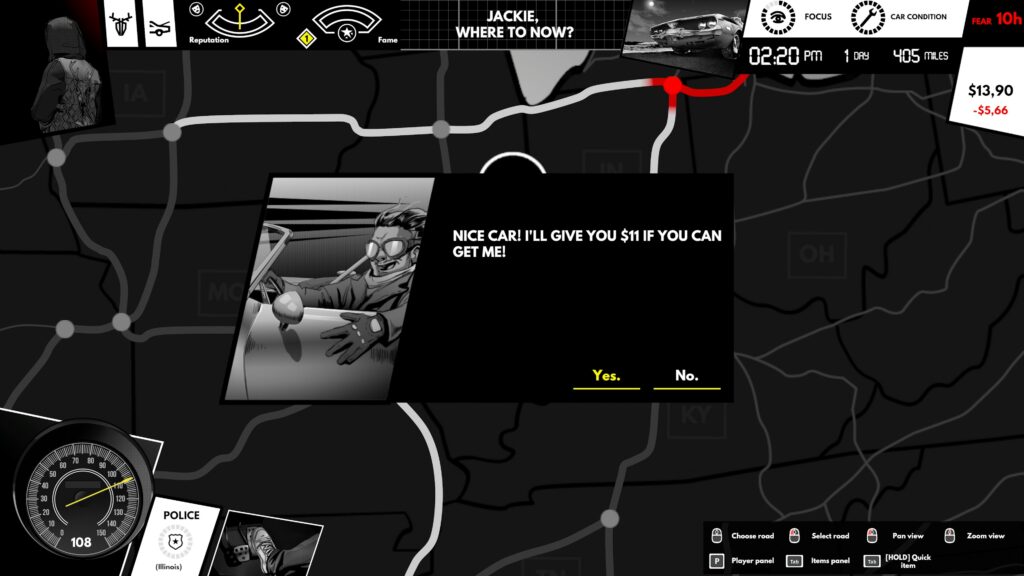
Heading Out has been available on Steam for nearly a week today. With hundreds of positive reviews, it’s clear that Serious Sim has quite the hit on its hands. We’re also looking forward to “Heading Out” on this journey soon, and we congratulate everyone at the studio for this release.
Thank you! Please share your positive feedback. 🔋
How could we improve this post? Please Help us. 😔
[News Reporter]
Avinash is currently pursuing a Business degree in Australia. For more than three years, he has been working as a gaming journalist, utilizing his writing skills and love for gaming to report on the latest updates in the industry. Avinash loves to play action games like Devil May Cry and has also been mentioned on highly regarded websites, such as IGN, GamesRadar, GameRant, Dualshockers, CBR, and Gamespot.


 Threads
Threads